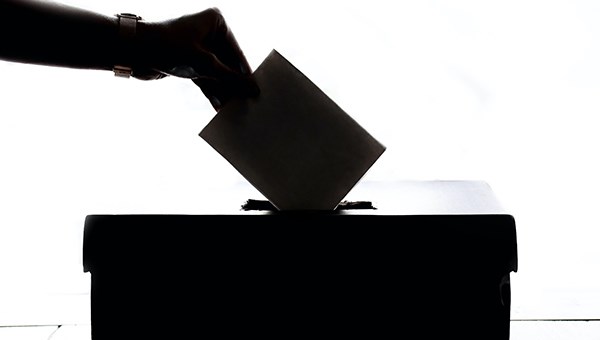The City of Burnaby will be ditching secrecy ballots for most voters in the upcoming byelection in an effort to stamp out high-touch points to curb the potential transmission of COVID-19.
Secrecy sleeves are another layer – an envelope or a small paper folder – that covers a person’s ballot when casting their vote. In a report to council, staff said the move will not compromise the confidentiality of people’s votes, noting the Local Government Act has several provisions intended to preserve the secrecy of ballots.
Every person at a voting place is mandated by the act to preserve ballots’ secrecy, and they are barred from interfering with a person marking a ballot, attempting to see how another person voted, communicating information about how another person voted and causing a person to show how they marked their ballot. All voting places must also have a booth where a person can mark their ballot in secret.
The Local Government Act doesn’t require municipalities to offer secrecy sleeves, but the city’s current bylaws allow voters to request one.
Earlier this year, the province provided guidelines to local governments on conducting byelections during the COVID-19 pandemic, including a recommendation to reduce high-touch points.
“Removal of a secrecy sleeve from the bylaw does not prevent its administrative use,” staff noted in the report to council, adding secrecy sleeves will still be provided at curbside voting, which is offered to voters with impaired mobility, due to the lack of a booth in curbside voting.
Staff said the city will also review secrecy sleeves ahead of the 2022 general local election, noting secrecy sleeves can return without requiring a bylaw amendment.
Staff also addressed the city’s advance voting opportunities but didn’t offer any concrete details on how many days of advance voting will be on offer or how many locations they would be offered at.
Cities are required by the Local Government Act to provide at least two advance voting opportunities. In 2018, the city offered three opportunities, and this election could see even more.
“Staff are planning to provide severa advance voting opportunities at six locations. The exact number of advance voting opportunities will depend on availability of voting opportunities,” reads the staff report.
More specifically, advance voting will hinge on whether the city can offer widespread mail-in voting, for which the city will need permission from the provincial government.
For now, staff are expected to bring forward a bylaw that will set the two required advance voting opportunities on the 10th (a Wednesday) and 14th (a Saturday) days before the general voting day, which is always on a Saturday. The bylaw will also make room for the chief election officer to determine further advance voting opportunities.
Follow Dustin on Twitter at @dustinrgodfrey
Email [email protected]



